Compassionate Justice Past Speakers Audio/Video Gallery
For 14 years, The Compassionate Justice Group has offered a compelling speaker series exploring a variety of topics concerning our justice system and broader social justice issues in Canada.
Compassionate Justice Speakers have included the individuals below. Click the links to listen or to watch the archival recordings.
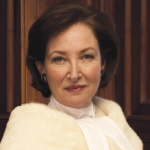 April 7, 2024 @ 12:30 – Putting Compassion into the Service of Justice
April 7, 2024 @ 12:30 – Putting Compassion into the Service of Justice
The Honourable Rosalie Abella
Retired Justice of the Supreme Court of Canada
The Honourable Rosalie Silberman Abella is a retired Justice of the Supreme Court of Canada with 45 years of experience in the judiciary. In an interview format she will explore “the need to put compassion back into the service of law and law into the service of justice,” and to do so in the context of “how the world looks to those who are vulnerable.” The Q&A discussion will be moderated by retired Justice Robert Blair.
The Honourable Rosalie Abella : Introduction | Presentation | Questions

February 18, 2024 @ 12:30 – A Blunt Instrument
Erin Dann – Criminal Defence Lawyer, Emery Dann LLP
Long-term detention of individuals found not criminally responsible
Erin Dann has participated in over 100 cases at the Court of Appeal for Ontario and the Supreme Court of Canada.
She is regularly appointed amicus curiae in criminal cases involving mental health issues. Being found not criminally responsible by reason of a mental disorder is not a “get out of jail free” card. Erin will share stories of individuals found NCR of offences that might never have resulted in a jail sentence, who have spent years, detained in forensic hospitals.
Erin Dann: Introduction | Presentation | Questions
November 12, 2023 @ 12:30 –  A Criminal Justice Revolution
A Criminal Justice Revolution
Benjamin Perrin – Law Professor, University of British Columbia
From ‘tough on crime’ to a new transformative justice vision
How can we move beyond “tough on crime” policies to compassionate, evidence-based approaches? Benjamin Perrin will recount his own personal revolution in thinking and share with us his new transformative justice vision that is set out in his latest book, Indictment: The Criminal Justice System on Trial. Benjamin is a national best-selling author and law professor at the University of British Columbia. He served in Prime Minister Stephen Harper’s Office as in-house legalcounsel and lead policy advisor on criminal justice and public safety (2012-3).
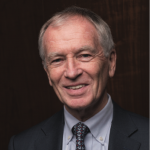 October 15, 2023 @ 12:30 – Justice Starts With Knowing
October 15, 2023 @ 12:30 – Justice Starts With Knowing
Phillip Crawley – CEO and Publisher of the Globe and Mail:
The current stand-off between the Government of Canada and the big tech platforms, Google and Facebook, is starting
to deprive Canadians of their normal access points for content from many media organizations. This is posing a major risk to maintaining and building an informed citizenry in Canada. Phillip has been in the newspaper business for 58 years, the last 25 years at the Globe and Mail as the Globe’s CEO and publisher.
Phillip Crawley Videos: Introduction by Andrew Saunders | Presentation | Questions
 January 22, 2023 – What Judges Don’t Decide at Sentencing
January 22, 2023 – What Judges Don’t Decide at Sentencing
Lisa Kerr is a law professor who teaches criminal law, sentencing and prison law. She serves as the Director of the Criminal Law Group at Queen’s Law and works with the Queen’s Prison Law Clinic on strategic litigation. Sentencing judges decide only the length of a prison sentence, which means that the experience and severity of punishment is beyond the control of criminal law. Read more
Lisa Kerr Videos: Introduction by Annamaria Enenajor | Presentation | Questions
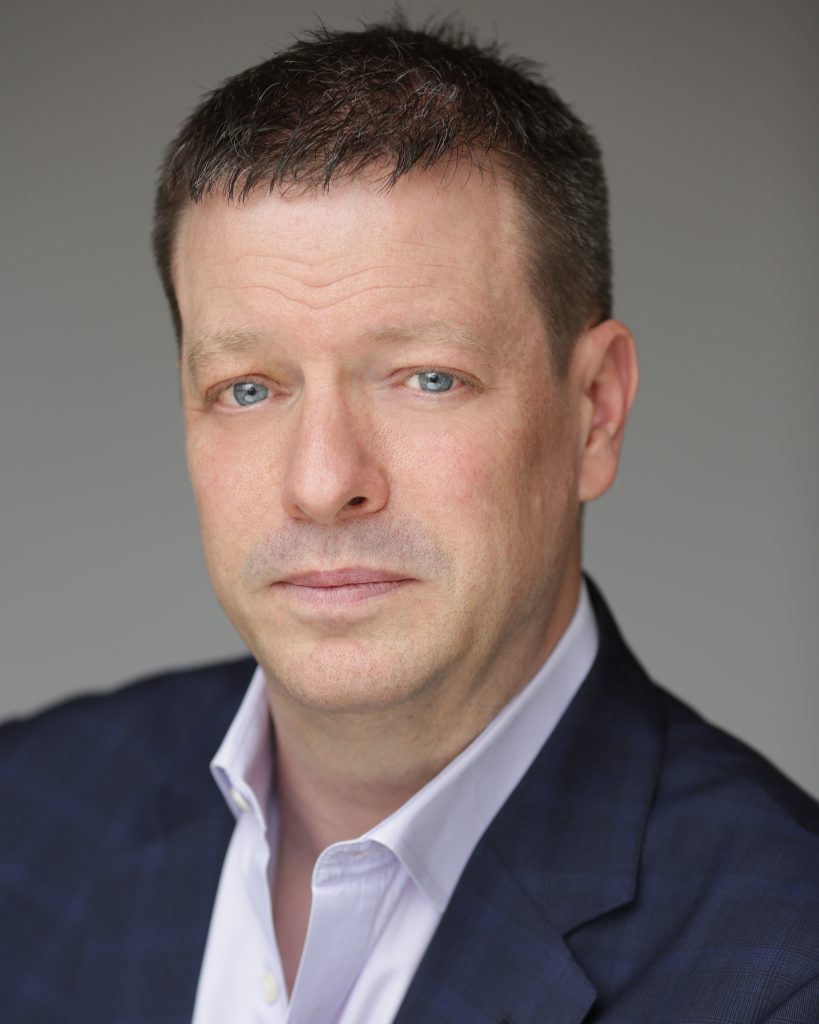 November 20, 2022 – Darkness on the Edge of Town
November 20, 2022 – Darkness on the Edge of Town
Doug Saunders is the international-affairs columnist for the Globe and Mail. He served as the paper’s London-based European bureau chief for a decade. Until recently, the world’s social problems and inequities were most visible in inner cities. But the last few years have seen a dramatic shift, with the suburbanization of poverty and immigration settlement shifting the most vulnerable communities to the outskirts.
Doug Saunders Videos: Introduction by Elizabeth Renzetti | Presentation | Questions
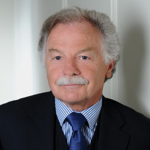
Bill Trudell
Chair, Canadian Council of Criminal Defense Lawyers
Innocence Unplugged
Trudell was a founding member and is now the current Chair of the Canadian Council of Criminal Defence Lawyers .He is also a frequent lecturer and media commentator on Criminal Justice issues in Canada. Much of the public misunderstands the Criminal Justice System yet it is a cornerstone of our Democracy and the presumption of innocence is the essential mortar that supports it.”
Bill Trudell Videos: Introduction by Patrick Lesage | Presentation | Questions
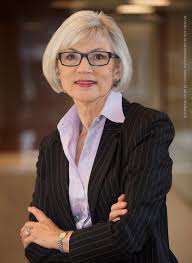 Beverley McLachlin
Beverley McLachlin
Former Chief Justice of the Supreme Court of Canada
Accessing Justice
Access to justice is a fundamental need of people in the 21st Century. Yet providing people access to the justice system in our complex post-modern world is challenging. We need to rethink how we provide justice to citizens if we want to meet this challenge. Beverley was 17th Chief Justice of Canada from 2000 to 2017, the first woman to hold that position and the longest serving Chief Justice in Canadian history.
Presentation:
Question and Answer period:
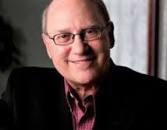 Harry Nigh
Harry Nigh
Dismas Fellowship Network
The Road Home is not Easy:
an ex-prisoner rebuilding a life in society
This event features a panel of three ex-prisoners who will discuss the challenges and setbacks they have faced in their return from incarceration to a life in society. They will discuss the deep fear and uncertainty that fills them in the early days. The problems and roadblocks they encounter. The kinds of help they need. The help they receive. The discussion will be moderated by Harry Nigh, a former prison chaplain who has spent over 40 years working with former inmates.
Presentation:
Question & Answer Period:
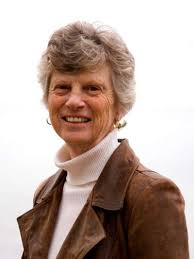 Paula Mallea
Paula Mallea
Criminal Lawyer and Author
Beyond Incarceration: Safety and True Criminal Justice
Ms. Mallea lays out the case for a complete overhaul of Canada’s degrading, unhealthy, discriminatory and expensive incarceration model of criminal justice for one that truly values public safety, making amends for wrongs, and rehabilitation. She practised criminal law for fifteen years in Ontario and Manitoba, and is the author of five books. She defended prisoners in nine different Kingston penitentiaries, spending hundreds of hours with inmates in these institutions.
Presentation:
Question and Answer Period:
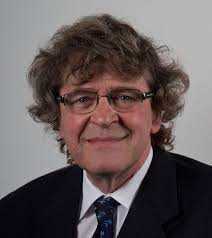
James Lockyer
Counsel to the Wrongfully Convicted
Guilty and Convicted Until Proven Innocent
This happens. Our justice system depends on the intervention of humans and at times it fails. When this happens, a life is tragically altered. James Lockyer has been a Canadian pioneer in helping those who have been wrongfully convicted. He is a founding director of the Association in Defence of the Wrongly Convicted and was awarded the Order of Canada in 2019 in recognition of his work. Lockyer speaks to how we can right big wrongs.
Introduction:
Presentation:
 Peter Henein (Introduction) & Marie Henein (presenter)
Peter Henein (Introduction) & Marie Henein (presenter)
Criminal Lawyer & Senior Partner at the law firm of Henein Hutchison LLP.
The Politics of Criminal Justice Reform
This speech touches upon the challenges in effecting criminal justice reform in our new social media world where politicians are informed by tweets rather than Law Commission reports. The instant opinion formation in social media is posing a huge potential impediment to informed evidence based decision making in Criminal law reform.
Introduction
Presentation
Questions and Answers
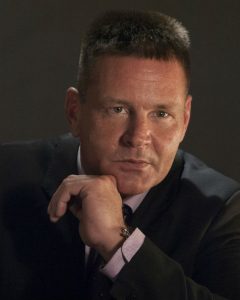
Lee Chapelle
President: Canada Prison Consulting
One Man’s Journey
Based on his own story “Hard Time In Canada One Man’s Journey Inside and Out” Lee describes the reality of existence in prison and need for change if we want to improve rehabilitation for those who have crossed the line. Lee has created a consultancy that helps those who found themselves convicted and entering the prison system for the first time. Lee substituted for Rob Clark at the last minute (literally half an hour prior to start time) with an informal , yet, compelling conversation.
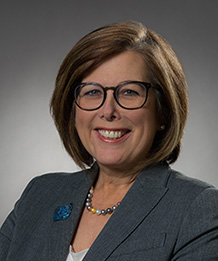
(Photography by Couvrette/Ottawa)
Jennifer Oades
Chair, Parole Board of Canada
Beyond the Headlines
This presentation will challenge us to look beyond the media headlines, to gain a better understanding of the work of the Parole Board of Canada, and to explore better ways for the conditional release of offenders into our communities.
Presentation:
Questions and Answers:
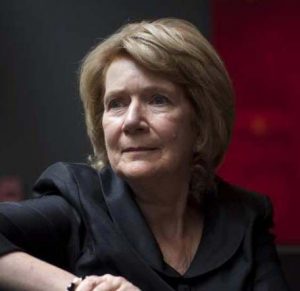 Mary Campbell
Mary Campbell
Retired Director General Corrections and Criminal Justice
Canada’s New Death Penalty
How is it that Canada is once again sentencing people to death? What other reforms has no one told you about? With over 40 years experience, lawyer Mary Campbell has been a senior policy and legislative advisor through the good, the bad, and the ugly. She will highlight some of the key recent sentencing and corrections reforms in Canada.
Presentation:
Questions and Answers:
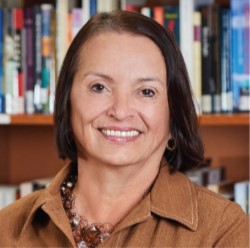
Rebecca Jamieson
President-CEO of Six Nations Polytechnic
The 4 R’s of Reconciliation: Recovery, Revitalization, Restoration and Reciprocity
Rebecca Jamieson, Tuscarora, is the President-CEO of Six Nations Polytechnic, a centre of excellence for indigenous community-based education at the post-secondary level. Rebecca has been involved at all levels of First Nations education in a wide range of roles. Indigenous institutes of higher learning have a unique role in reconciliation. Learning, grounded in Indigenous ways of knowing and living, facilitates the 4 R’s and has the potential to contribute significantly to a sustainable future for all who share this land.
Presentation:
Questions & Answers:
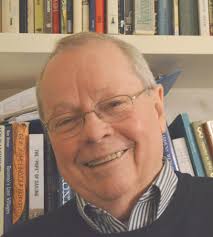
Social Justice as a Political Priority
Robin Crombie on behalf of David Crombie
David was scheduled to lead a panel discussion with representatives of the three major provincial parties – Mike Colle, Liberal. Robin Martin, Conservative and Jessica Bell, NDP – on their party’s views on expressing social justice principles in their respective party’s policy platforms. David unfortunately was not able to make the session due to a rapid onset of the flu and Robin his daughter very ably stepped in and delivered David’s introductory presentation. The first session below covers her presentation and responses from all three panelists. The second session below is the Q & A with the audience
Presentation:
Questions:

Doug Saunders
International Affairs Columnist – Globe and Mail
Canada’s Crisis of underpopulation and its geography of inequality
Doug served as the paper’s London-based European bureau chief for a decade. Drawing on best practices he has studied across Europe and North America, he will look at what needs to be done to turn our cities into more effective platforms for immigrant integration, innovation, economic equality, ecological sustainability and population growth.
Presentation:
Question and answers:
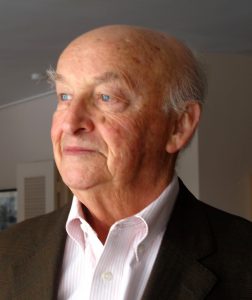
Peter Russell
Professor Emeritus of Political Science, University of Toronto
Understanding Aboriginal Peoples in a Canada based on incomplete conquests
Peter’s presentation, drawn from his latest book Canada’s Odyssey, will serve as a clear response to the general confusion about the place of Indigenous peoples within Canada’s constitutional structure. He will revisit the assumptions Canadians hold regarding Indigenous peoples and the history and structure of the Canadian state.
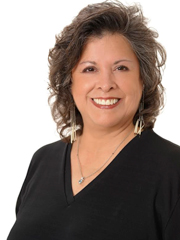 Cynthia Wesley-Esquimaux
Cynthia Wesley-Esquimaux
Indigenous Chair on Truth and Reconciliation – Lakehead University, Thunder Bay & Orillia
And now that we have reconciled, do we have reconciliation?
Cynthia holds the Chair on Truth and Reconciliation at Lakehead University and is a Truth and Reconciliation Commission Honorary Witness. We have spent one and half years building a process of reconciliation in Canada. What has it meant for Canadians to undertake the kind of self-reflection the 94 Calls to Action have demanded? Are we there yet, and if not, when do we expect to arrive and what could we hope to see.
 Howard Sapers
Howard Sapers
Ontario Special Advisor on Corrections Reform
Raising the Bar – Working to Correct Corrections
Serving as the Correctional Investigator of Canada between 2004 and 2016, Howard and his staff worked to ensure safe, lawful and humane corrections through independent oversight of the Correctional Service of Canada. Effective January 1, 2017, Howard will take on a new role as the Special Advisor on Corrections Reform to the Government of Ontario. In his presentation, he will reflect on developments in the CSC over the last two years and provide insights on his new responsibilities.

Fiona Crean
Chief Operating Officer – Indspire
Introduction by Ann Bythell – member of the Compassionate Justice Group
Seeking Equity and Fairness in New Ways
With her background as a teacher, mediator and investigator, Fiona has broken new ground throughout her career in her quest for equity and fairness. Having furthered good governance within Ontario, Nunavut and abroad, Fiona will talk about the role of the Ombudsman as a rich instrument in resolving conflict, addressing inequality and giving voice to those not at the table. Fiona brings a wealth of real life experience as the chief operating officer of the Ontario Ombudsman’s office, the city of Toronto’s first ombudsman, ombudsman for York University and extensive governance work in South America, Eastern Europe, southern Africa and Indigenous communities within Canada.
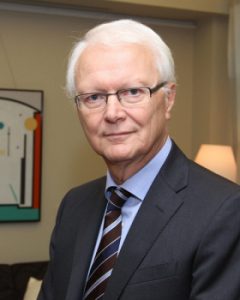
Per Sjogren
Swedish Ambassador to Canada
with Introduction by Walter Wells, member of the Compassionate Justice Group
The Swedish Model for a fair and inclusive society
Canada and Sweden are very similar in economic terms such as GDP and productivity and taxation levels. However the size of the wealth gap is smaller in Sweden than in Canada. Sweden is renowned for looking after all of its citizens including those on the economic margin. Per will talk about opinions and attitudes in Sweden that result in systems of inclusiveness and support and the benefits to Swedish citizens of their world renowned social safety net.
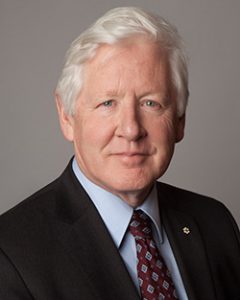
The Hon. Bob Rae
Interim Leader of the Liberal Party of Canada 2011-2013, 21st Premier of Ontario
Public Policy and the Evolving Political Process
Bob Rae will conclude the series with a look at key areas of public policy and the evolving political process. Bob Rae is a senior partner at Olthuis Kleer Townshend LLP, where he works with First Nations across Canada as legal counsel, advisor,
and negotiator. He served as Ontario’s 21st Premier from 1990 to 1995 and Interim Federal Leader of the Liberal Party in 2011-2013. He was named Queen’s Counsel in 1984, appointed to the Privy Council of Canada in 1998, named an Officer of the Order of Canada in 2000, received the Order of Ontario in 2004 and Companion of the Order of Canada in 2015. In addition to his legal practice, Bob teaches at the University of Toronto as a Distinguished Senior Fellow at the School of Public Policy and Governance (SPPG). He has also written five books, most recently “What’s Happened to Politics”.

Kaylie Tiessen
Economist, Canadian Centre for Policy Alternatives
Inequality in Changing Times
Kaylie Tiessen has been recognized as one of the top 20 under-35 young professionals changing the world. She is at the helm of Ontario’s emerging living wage movement. Her report on Toronto’s living wage is being used by the City of Toronto and other communities across Ontario. Recent and growing attention to income inequality in the media and from our politicians has led Kaylie Tiessen, economist with the Canadian Centre for Policy Alternatives Ontario Office, to believe that the time is right to start talking about solutions. Join Kaylie as she explores how we got here and discuss the policy solutions to move us forward.
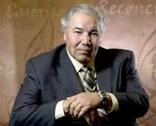
Justice Murray Sinclair
Chair, Truth and Reconciliation Commission of Canada
If you thought the truth was hard
From 2009 to its conclusion, Justice Murray Sinclair served as the Chair of the Truth and Reconciliation Commission of Canada, listening to those who had been affected by the Indian Residential School System. The Commission published a summary of its final report in June, 2015. Justice Sinclair was Manitoba‘s first Aboriginal Judge and the second Aboriginal Judge in Canada. He is an adjunct professor of Law and an adjunct professor in the Faculty of Graduate Studies at the University of Manitoba.
Now hear a survivor speak to you. Paul Voudrach is his name. He was part of the TRC and only spoke about himself at the last minute. It moved many to tears. [watch the video].
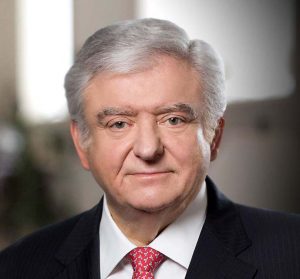
Edward L. Greenspan
Criminal Lawyer For the Defence
Current Developments in Criminal Law in Canada
Edward has been practising law throughout Canada since 1970. He is one of Canada’s best known defence lawyers, with a strong commitment to public education in the law, as well as an activist advocate in areas that pertain to developments in criminal law. He is the author of Greenspan: The Case for the Defence. In 1986, he took a sabbatical to travel across the country and debate successfully against the return of the death penalty.
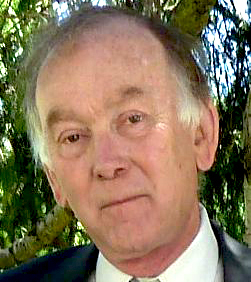
Graham Stewart
Former Director of the John Howard Society
Canada’s Criminal Justice System: The Need for a Reliable Moral Compass
Graham Stewart served as Executive Director of the John Howard Society of Canada, providing leadership in pursuit of prisoner human rights and a criminal justice system that is consistent with the social values that have marked Canadian society. Graham will speak to the values and practices that have prevailed in the longer term, and will assess the changes that are currently taking place. Is the federal government using a reliable compass? Or a flawed compass?
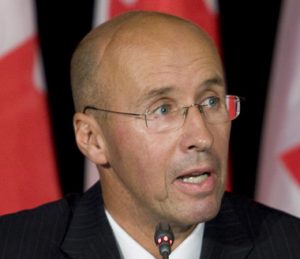 Kevin Page
Kevin Page
Jean-Luc Pepin Research Chair, University of Ottawa; Former Parliamentary Budget Officer of Canada; Introduced by The Hon Bob Rae
The Fiscal Cost of Canada’s Criminal Justice System
As Canada’s first ever Parliamentary Budget Officer, Kevin Page got involved in a number of high profile public finance issues, including the costing of some of the Tough-on-Crime legislation. Is it possible to be tough on crime – to keep more people in prisons with longer sentences – without a significant impact on taxpayers? What is the cost of Canada’s criminal justice system?
 Howard Sapers
Howard Sapers
Correctional Investigator of Canada
Federal Corrections in Canada – An Ombudsman’s View
After a successful political career in Alberta, Howard worked for the National Crime Prevention Centre and in 2005 was appointed to be the ombudsman for federal offenders, reporting to Parliament annually. He will discuss the role, mandate and priorities of his office and speak to the relevance and need for prison oversight, focusing on the impact of recent policy changes on federally incarcerated populations, with a focus on women offenders, Aboriginal offenders and offenders with mental health needs.
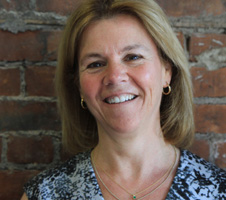
Dr Lori Triano-Antidormi
Psychologist and mother of Zachary Antidormi
Victims in the Criminal Justice System – What Do They Need?
Lori is a psychologist who works with family members of homicide victims. She is also the mother of 2 1/2 year old murder victim, Zachary Antidormi. Recent attention to victim’s rights, in the face of Bill C-54, lead Dr. Triano-Antidormi to question how the government actually assists victims and, more importantly, to consider what victims actually need to be assisted in their recovery.
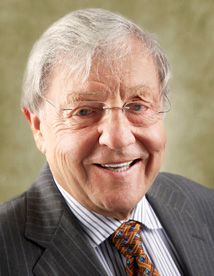
The Hon. Roy McMurtry
Former Chief Justice and Attorney General of Ontario
Reflections of Our Justice System
With over 50 years involvement serving in the field of criminal justice in Canada as a criminal lawyer, Attorney General Of Ontario and as Chief Justice Of Ontario, Roy has a mature understanding of the evolution of our justice system. With this “long view”, Roy will be sharing his views on the current state of criminal justice in Canada and what should be the areas of attention for a progressive path ahead, reflecting our Canadian values.
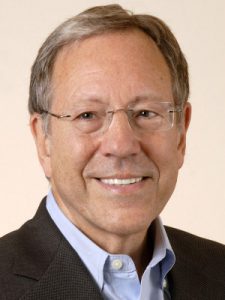
The Hon. Irwin Cotler
Member of Parliament for Mount Royal, QuebecFormer Minister of Justice & Attorney General of Canada;Emeritus Professor of Law (McGill University)
The Criminal [In]Justice Agenda
With four decades in the trenches of human rights and justice advocacy in Canada and around the world, former Canadian Justice Minister Irwin Cotler has a unique scholarly and practical appreciation of the governmental and parliamentary justice agenda. Irwin will explore constitutional, policy and evidentiary perspectives of the government’s crime and punishment agenda.
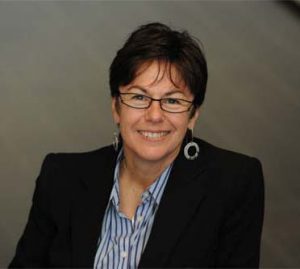
Kim Pate
Executive Director of the Canadian Association of Elizabeth Fry Societies
Criminal Justice Policies and Practices that Impact on Women: Ashley Smith and Beyond
Since 1992, Kim Pate has served as the Executive Director of the Canadian Association of Elizabeth Fry Societies, leading their work with and on behalf of marginalized women and girls throughout Canada. Kim was appointed a member of the Order of Canada in June and received an honorary doctorate degree from the Law Society of Upper Canada in September for her strong advocacy on behalf of women who are victimized and incarcerated.
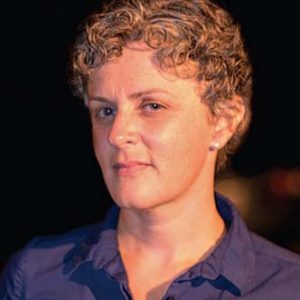
Kate Johnson and Yasin Dwyer
Chaplain, Queen’s University / Imam advisor, part time at Queen’s University
An Assault on the Honourable Tradition of Chaplaincy in Correctional Services
Kate Johnson & Yasin Dwyer both worked for many years in our federal
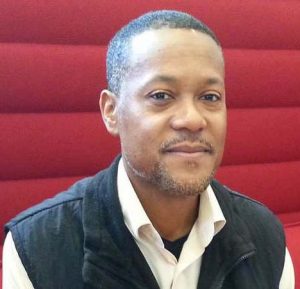
prisons (based in Joyceville)
during a time of major legislative and procedural change in the Correctional Service of Canada. They both speak to us from a chaplain’s point of view about deeply concerning changes in rehabilitation and reintegration practices. They also talk directly to changes in funding for chaplaincy services recently introduced by the federal government.
Juliana Greenspan and Tony Doob, Professor Emeritus of Criminology, University of Toronto
Limiting the Use of Imprisonment: Learning from Successes
 From the mid-19th century until 2006, Canadian governments – Conservative and Liberal – understood that crime
From the mid-19th century until 2006, Canadian governments – Conservative and Liberal – understood that crime
could not be adequately addressed by increasing imprisonment. Imprisonment was seen as being sometimes necessary,
but often wasteful of human and financial resources. In the past, Canadian governments – both Liberal and Conservative – have been successful in limiting imprisonment without increasing crime. What can we learn from our experiences?
Juliana Greenspan introduction:
Tony Doob presentation:

